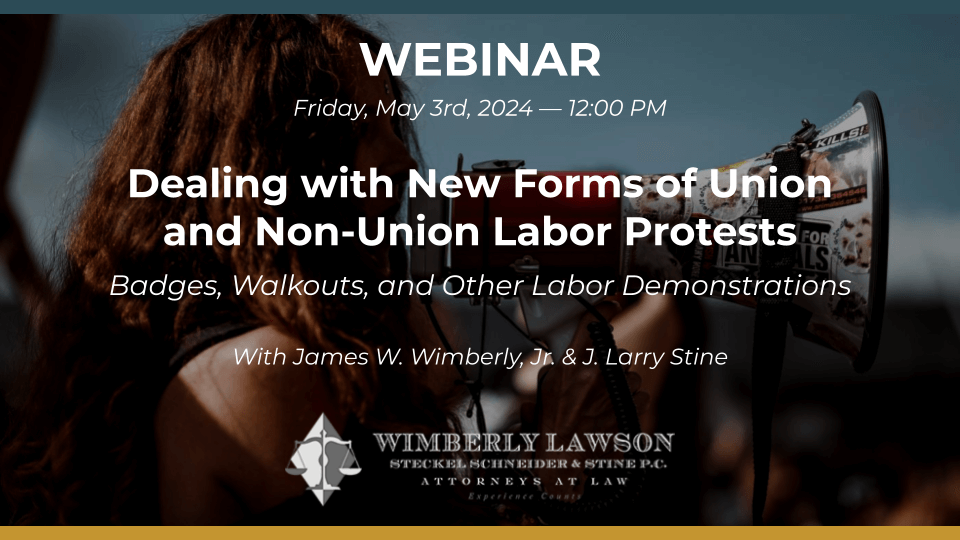An Easter Egg in the Coronavirus Relief Package: Employer Neutrality in the Face of a Union Election
While the term “Easter egg” has been used to mean a hidden object (like an actual egg in an Easter egg hunt), it has come to be more commonly used to mean a message, image, or feature hidden in a video game, movie, or other medium. Although not literally hidden in the Coronavirus Relief Package, there is a nice Easter egg buried deep in its hundreds of pages that helps unions.
One of the benefits of the Coronavirus relief package is the availability of low interest loans to businesses impacted by the pandemic. Businesses, including non-profits, with 500 to 10,000 employees have access to loans that would have an interest rate not higher than 2%, and would not require interest or principal repayments in the first six months.
These loans have some strings attached. In exchange for receiving the loans, borrowers would have to certify that they:
- Would use the loan to retain at least 90% of their workforce until Sept. 30, 2020.
- Intend to restore at least 90% of their workforce as of Feb. 1, 2020, within four months of the end of the coronavirus public health emergency.
- Are U.S.-based.
- Won’t pay dividends or repurchase equities.
- Won’t outsource jobs or relocate them outside the country or abrogate existing collective bargaining agreements for the term of the loan and two subsequent years.
- Would remain neutral on any union organizing efforts during the loan term.
That last condition is a major advantage for unions: a company receiving one of these loans must remain neutral on any union organizing efforts during the term of the loan. Meaning the company cannot take steps to oppose any union organizing efforts during the term of the loan.
The takeaway: This is a term that companies need to consider very carefully before accepting one of these loans. Does the short term relief of the low interest loan outweigh the long term impact of a possible union election that the company can do nothing to oppose?

Kathleen J. Jennings is a former principal in the Atlanta office of Wimberly, Lawson, Steckel, Schneider, & Stine, P.C. She defends employers in employment matters, such as sexual harassment, discrimination, Wage and Hour, OSHA, restrictive covenants, and other employment litigation and provides training and counseling to employers in employment matters.
Related Content
Get Email Updates
Recent Content

Featured Federalist Article: Text Education in Muldrow v. St. Louis: The Supreme Court Just Made Title VII Cases Easier for Plaintiffs to Win

Judge Invalidates Joint Employer Rule, and Independent Contractor Rule Takes Effect

The Importance of Fairness in Employment to the Law and to Job Satisfaction

Major Employers Challenge Constitutionality of Labor Act

Starbucks' Big Change in Labor Policies




